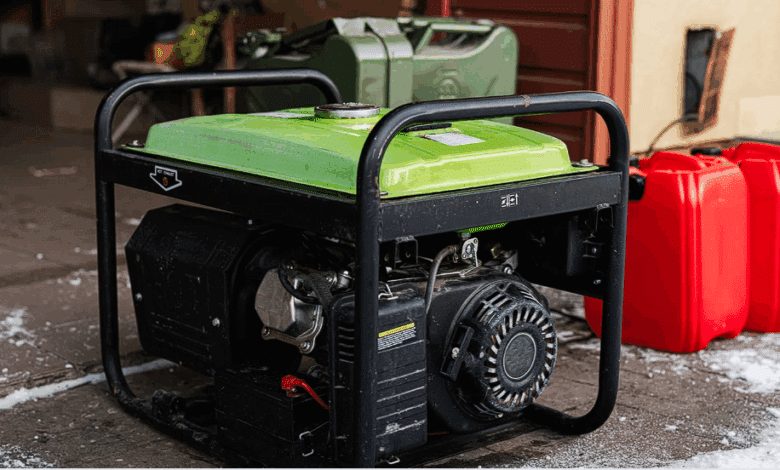Can You Run a Generator Overnight? – Important Safety Tips for CO and Noise

In this guide, we address a common question: Can you safely run a generator overnight? As experienced campers and generator users, we’ve tested this in real-world conditions and provide trustworthy advice along with necessary safety precautions.
Yes, you can run your generator overnight—after all, continuous power supply is one of the main reasons for owning one. I’ve personally used my inverter generator overnight multiple times during extended power outages. However, using it overnight should be limited to emergencies and not become a daily habit.
There are several safety and performance-related considerations you should take into account before running your generator overnight.
Generators come in a wide range of sizes and fuel capacities. For instance, a powerful 12,000-watt generator like the Westinghouse WGen12000DF can operate for around 10 to 11 hours at 50–60% load on a full tank. Others may not last nearly as long.
So, how long a generator will run overnight depends on the model’s fuel efficiency and load management.
Can You Run Your Generator Overnight?
It depends on your generator’s capabilities. Some units are built for long runtime and can handle overnight operation at 50% load, while others may overheat or shut down before morning.
You should never overload your generator or stretch it beyond its designed runtime. Doing so may reduce the machine’s life and increase the risk of malfunction.
Tip: Before purchasing a generator, always check its runtime at 50% load. We’ve reviewed and tested many top-rated generators—visit our website to explore those reviews and runtime data.
Install Carbon Monoxide (CO) Detectors
Carbon monoxide is an invisible, odorless gas that is extremely dangerous. Exposure can cause symptoms like dizziness, fatigue, nausea—and in severe cases, death.
According to the U.S. Consumer Product Safety Commission, over 900 people died from CO poisoning caused by portable generators between 2005 and 2017.
Today’s inverter generators often come with built-in CO monitoring systems that automatically shut down the generator if carbon monoxide levels reach a dangerous threshold.
If your generator does not include this feature, make sure to install a CO detector in your home, RV, or campsite to keep your surroundings safe. It’s a small investment that could save lives.
Operate Your Generator Safely
Always operate your generator at least 20 feet away from any living space. Personally, I place mine 40 to 50 feet away and use a remote-start feature, so I don’t need to approach it manually.
Government agencies like the CDC and CPSC provide detailed recommendations on how to safely use portable generators. We highly recommend checking those out.
Also, ensure the generator is in a well-ventilated outdoor space. Running it in a closed garage or tent could lead to CO buildup or even overheating and potential explosions.
Dealing with Noise
Noise is another issue to consider—especially if you’re in a campground or residential area. Generators can be disruptive if they’re not designed for quiet operation.
I prefer using inverter generators with noise levels below 55 decibels for camping and tailgating, but quieter models tend to cost more.
If your generator is loud, consider using a muffler or building a DIY soundproof enclosure to minimize the noise. We’ve created a helpful guide on building a soundproof box—check it out on our website!
Do Campgrounds Allow Generators Overnight?
Most tent campgrounds do not allow generator use between 10 PM and 6 AM. However, policies can vary depending on the location and the type of campsite (tent, RV, or cabin).
Always check the rules beforehand to avoid fines or complaints.
Is It Safe to Run a Generator Overnight in an RV?
Yes, it is generally safe to run a generator overnight in an RV if it’s placed at least 20 to 30 feet away and all windows and vents are closed.
However, always install a CO detector inside your RV. Even if the risk seems minimal, it’s best to play it safe.
How Long Can You Continuously Run a Generator?
Larger standby generators can run for up to 3,000 hours over their lifespan when used to power a home. That said, running one non-stop for more than 500 hours without a break is not advisable.
Like any machine, prolonged use generates heat and wear that can cause breakdowns if maintenance isn’t performed.
How Long Can Diesel Generators Run Without Stopping?
Many portable diesel generators can operate continuously for 48 to 72 hours before needing a refuel. Larger diesel standby models can run for up to 500 hours if they have a steady fuel supply and regular oil checks.
Running your generator overnight is possible and sometimes necessary. Just be sure to take the proper precautions: ensure adequate distance, ventilation, and carbon monoxide monitoring—and manage noise levels if you’re in a shared space.
When used responsibly, generators are safe and reliable for overnight use in both emergency and outdoor situations.




![How to Bypass CO Sensor on Generator – [4-Step Safety Guide]](https://www.generator411.com/wp-content/uploads/2025/08/co-sensor-on-generator-390x220.png)